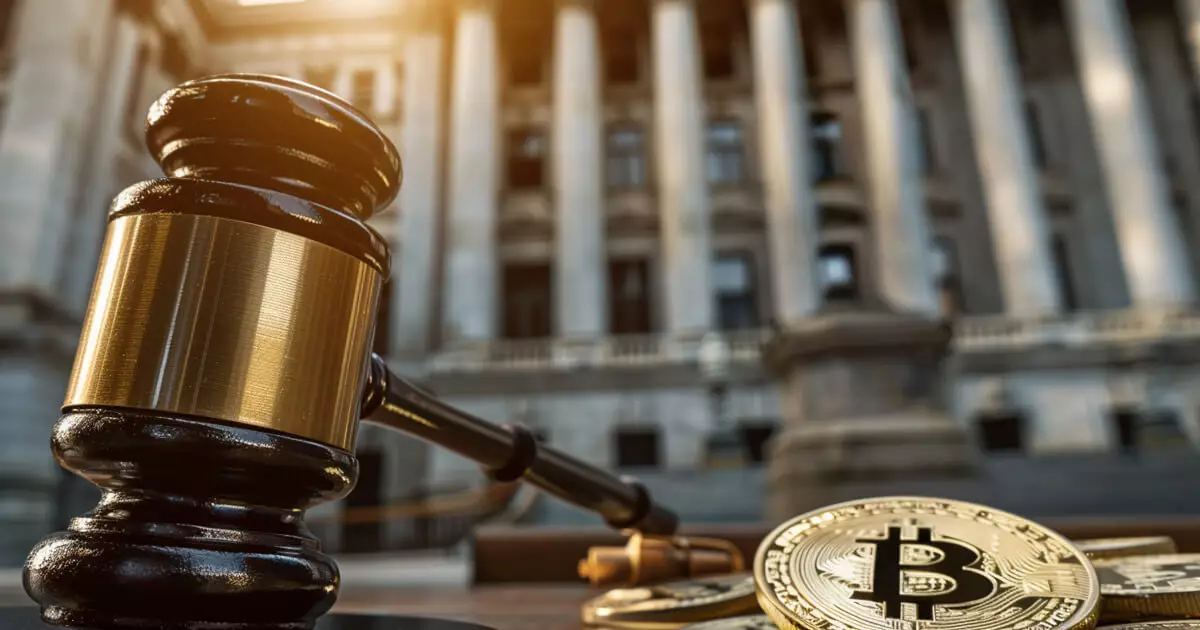In recent months, the conversation around Bitcoin regulation has shifted to the state level, spearheaded by the Satoshi Action Fund. This organization is pushing to establish protections for individuals who choose to self-custody their Bitcoin, mimicking the tactics that have helped the cannabis industry thrive despite ongoing federal prohibitions. By advocating for what they term “safe haven” states, the Satoshi Action Fund aims to provide legal clarity and support for Bitcoin enthusiasts, establishing a groundwork that could prove beneficial in the long term.
Dennis Porter, the CEO of the Satoshi Action Fund, has drawn parallels between the ongoing push for Bitcoin self-custody rights and past successful movements, notably in the realm of cannabis reform. He highlights how state laws can flourish independently of federal constraints, provided they are backed by a significant local following. Just as various states have legalized cannabis despite federal restrictions, Porter believes that establishing state-level protections for Bitcoin could similarly shield users from federal overreach. He emphasizes the importance of acting promptly, suggesting that inaction allows potential threats to Bitcoin rights to fester, much like the historical hesitance that delayed cannabis reform.
Porter’s perspective is rooted in historical movements such as women’s suffrage and civil rights, where state-level advocacy played a critical role prior to broader federal acceptance. However, while there is a compelling narrative in this argument, the reality of American law encompasses complexities that challenge this optimistic view.
Despite the spirit of activism spurred by the Satoshi Action Fund, legal experts offer a cautionary perspective. Attorney Joe Carlasare emphasizes the dominance of federal law in the U.S. legal system, notably the principle that federal legislation supersedes state laws. This raises the question of whether state-level initiatives are sufficient to truly protect Bitcoin self-custody. According to Carlasare, while no law can legally prevent individuals from self-custodying Bitcoin, the federal government retains the power to regulate and potentially obstruct such practices at any moment.
Moreover, Carlasare critiques the cannabis comparison, arguing that the federal government’s apparent leniency on cannabis prosecution is not merely a product of state laws, but rather a result of prioritizing larger trafficking cases. He questions the strength of the cannabis analogy and expresses skepticism towards the notion that state-level action can consistently influence federal responses.
Despite the complexities of the federal versus state law debate, Pennsylvania has taken a significant step forward with the introduction of House Bill 2481—dubbed the “Bitcoin Rights” bill. Passed with overwhelming bipartisan support in the House of Representatives, this legislation represents a crucial moment for Bitcoin advocacy at the state level. The bill aims to safeguard the rights of Pennsylvania residents to self-custody their digital assets and outlines tax guidelines for cryptocurrency transactions.
Such legislative action is notable in a state that is home to approximately 1.5 million crypto owners. Given Pennsylvania’s status as a pivotal swing state, its actions could set a precedent for other states grappling with how to approach cryptocurrency regulation. The Satoshi Action Fund hopes that Pennsylvania’s proactive measures will inspire similar legislative movements elsewhere, particularly as federal agencies debate the future of digital asset regulations.
The question remains: can state-level initiatives succeed in creating a protective environment for Bitcoin users in the face of potentially prohibitive federal laws? While the momentum at the state level is encouraging, the challenges posed by federal supremacy cannot be ignored. However, as more states like Pennsylvania take steps towards affirming the rights of Bitcoin holders, the landscape for cryptocurrency regulation may slowly begin to shift.
The developing situation underscores the importance of sustained advocacy and the need for stakeholders to remain vigilant and proactive. The outcome of these state-level initiatives not only holds implications for Bitcoin users but may very well influence the broader trajectory of cryptocurrency regulation across the United States. In an ecosystem characterized by rapid change and evolving legal standards, the emerging state-by-state approach could very well redefine how digital assets are treated in the long run.



















Leave a Reply